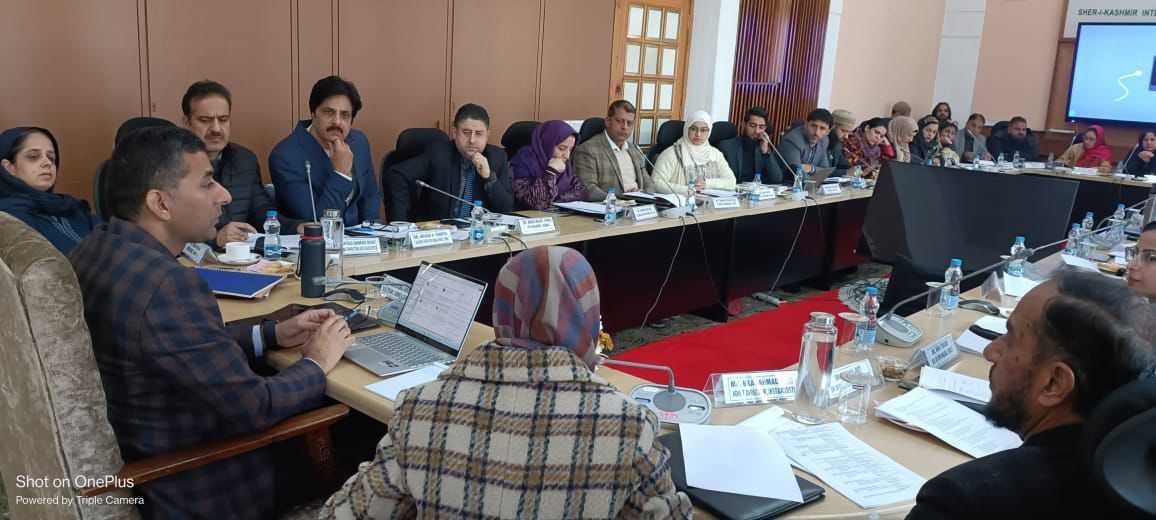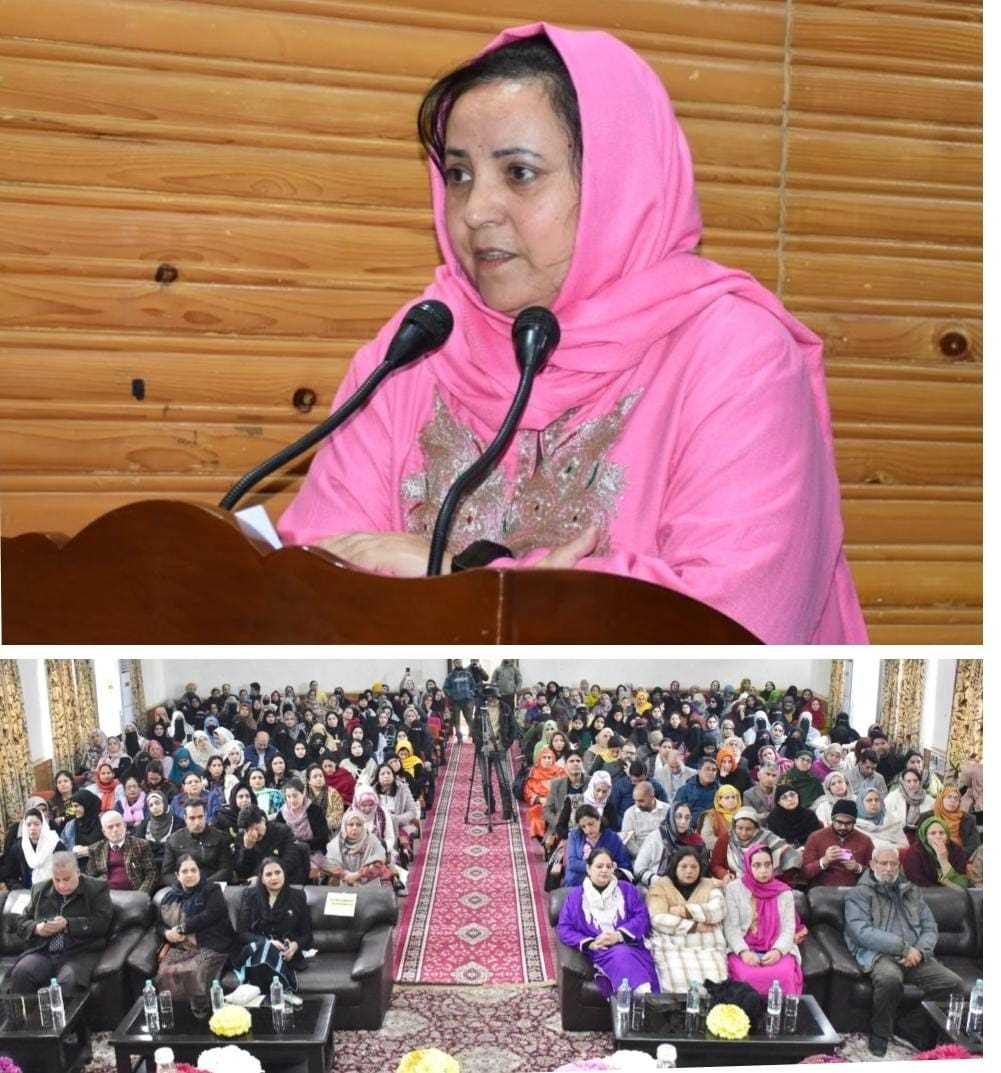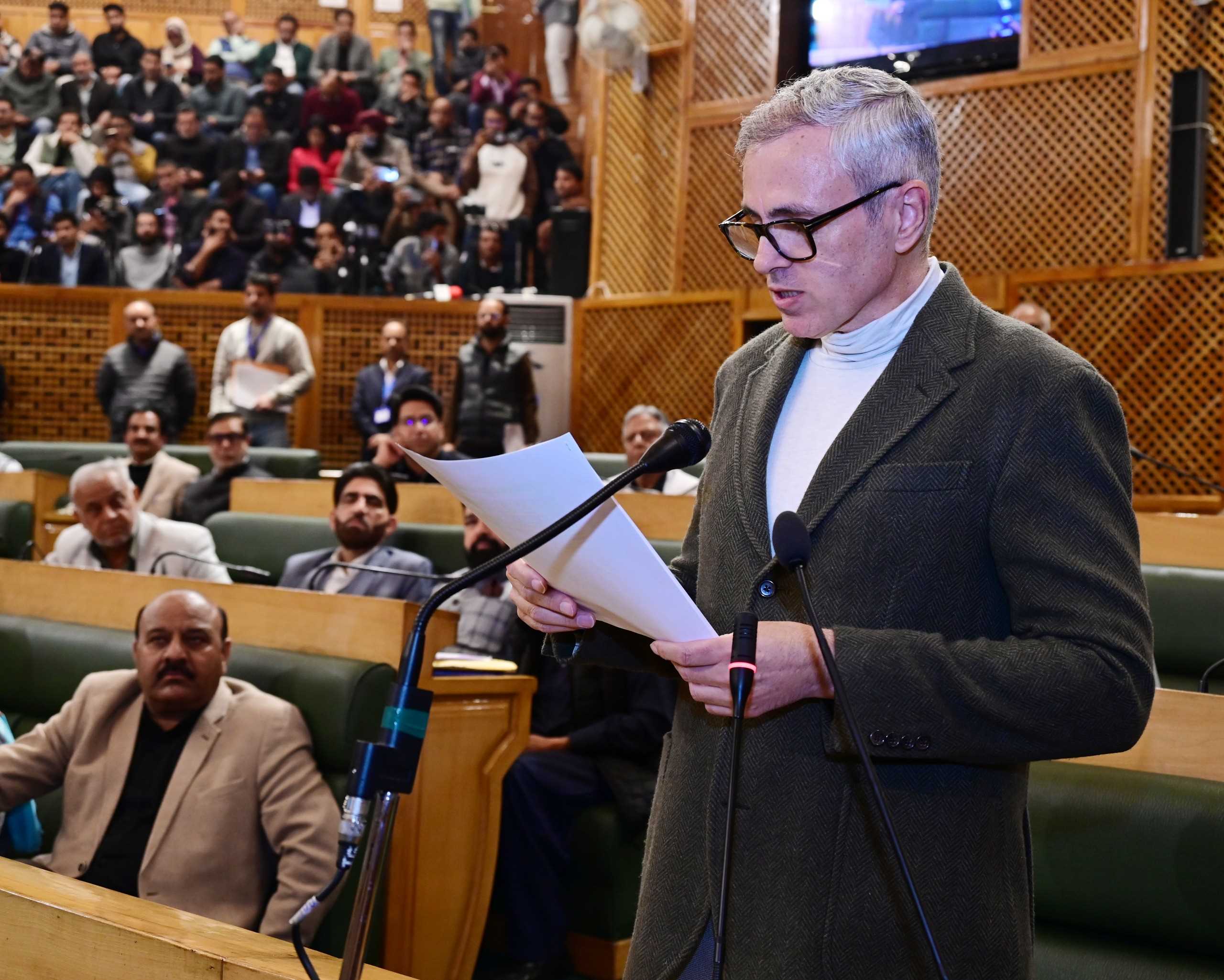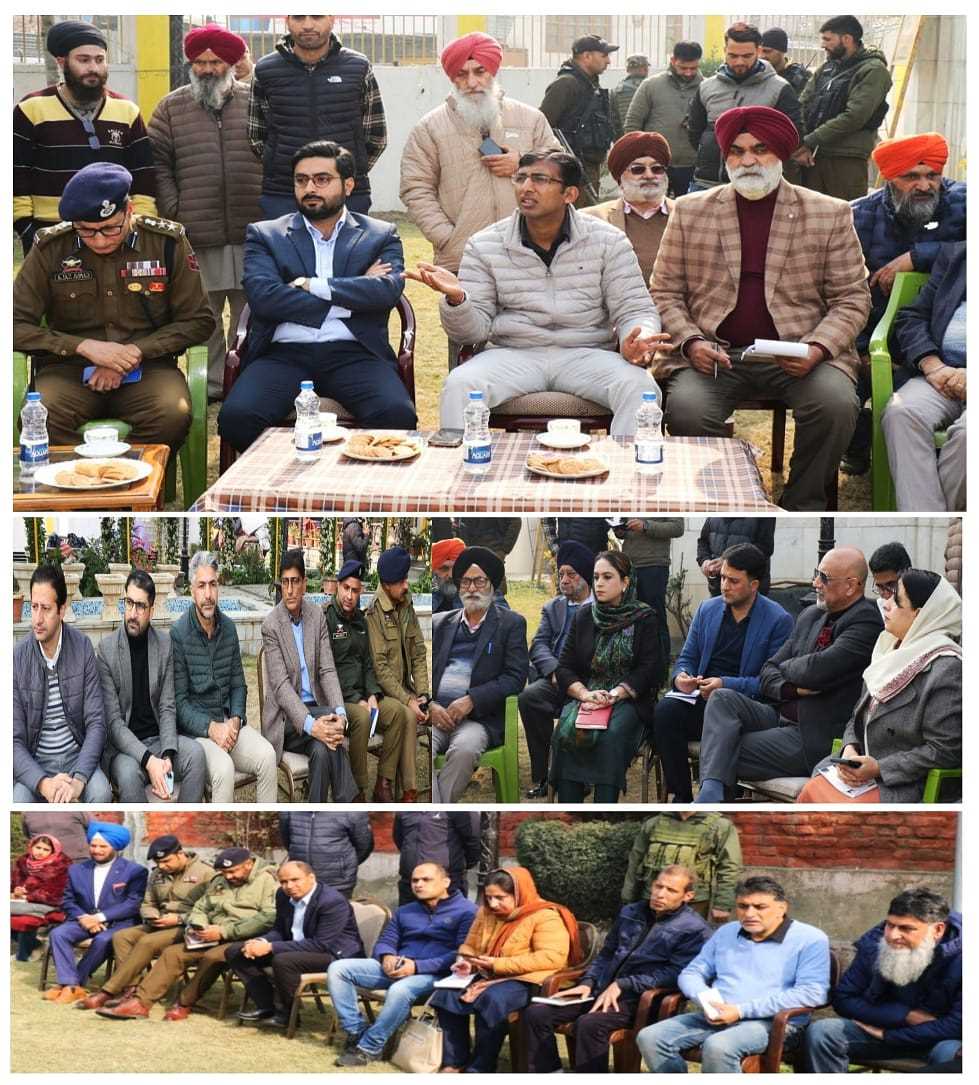Dr. Shahid Iqbal Choudhary, Secretary, Department of Science & Technology, today chaired a workshop with 37 Principal Investigators from leading academic and research institutions of Kashmir Province at Srinagar. The meeting featured detailed presentations by selected Project Investigators under Round 1 of the Sponsored Research and Extension Programme (SREP) 2025, implemented by the Jammu & Kashmir Science, Technology & Innovation Council (JKSTIC).
The 37 approved projects for Kashmir Province, representing an investment of more than ₹515.00 lakhs, span five strategic research clusters designed to address critical challenges facing the region while improving public service delivery. Principal Investigators from 16 premier institutions presented their research methodologies, pilot demonstration strategies, and anticipated community impact to the Secretary.
Participating institutions from Kashmir Province included Islamic University of Science & Technology Awantipora (IUST) with 6 projects, Sher-e-Kashmir University of Agricultural Sciences & Technology-Kashmir (SKUAST-K) with 8 projects, National Institute of Technology Srinagar (NIT) with 5 projects, Central University of Kashmir (CUK), Kashmir University (KU), NIELIT Srinagar, Sher-i-Kashmir Institute of Medical Sciences (SKIMS), Government Medical College Srinagar (GMC-S), ICAR-Central Institute of Temperate Horticulture (CITH), Indian Grassland & Fodder Research Institute (IGFRI), Cluster University Srinagar, Government College for Women Srinagar, Islamia College of Science & Commerce Srinagar, and JKSTIC itself, besides the government departments.
Smart Agriculture & Food Security emerged as the largest cluster with 9 projects. Researchers presented innovations in climate-resilient indigenous rice varieties through photosynthetic and biochemical modeling (CUK), smart blueberry farming establishment (SKUAST-K), stress-priming kits for climate-smart vegetable production, paprika and colored capsicum production systems for local seed self-reliance, tomato genetic interventions for water-deficit stress mitigation, AI-powered research data banks for sustainable agriculture, integrated forage production strategies for fodder security (IGFRI), and AI-enabled IoT weather stations for precision horticulture (JKSTIC), collectively benefiting over 200,000 farmers and supporting Kashmir's ₹4,000 crore horticulture economy.
Under Healthcare Innovation & Public Health (7 projects), Principal Investigators presented cutting-edge research including IoT-enabled smart IV infusion systems for patient safety in resource-constrained district hospitals (IUST), genomic analysis of hypertrophic cardiomyopathy and sudden cardiac death prevalent in Kashmir's population (SKIMS), longitudinal studies on opioid dependence mortality addressing the addiction crisis (SKIMS), Delphi-derived organophosphate poisoning severity scales for improved toxicology management (GMC-Srinagar), exploration of anti-breast cancer compounds from indigenous Himalayan flora Lagotis cashmeriana (CUK), biodegradable hydrogel wound dressing materials from Himalayan flora (ICSC), and isolation of exosomes from subclinical mastitis for novel veterinary diagnostics (Cluster University).
The Food Safety & Quality cluster (4 projects) featured presentations on groundbreaking consumer protection research: quantitative assessment of microplastic contamination in packaged food products with migration dynamics simulation (IUST), UV-C LED treatment combined with AI-driven risk modeling for microbial safety of fresh produce (IUST), AI-based geographical discrimination of honey to protect 30,000 marginal bee farmers in the sub-Himalayan region (IUST), and deep learning-powered Kashmiri saffron adulteration detection systems safeguarding the ₹300 crore GI-tagged saffron industry (NIELIT Srinagar).
Sustainable Infrastructure & Climate Action presentations (8 projects) covered technology-enabled corrosion monitoring for water supply pipelines preventing ₹100 crore annual losses (NIT), WEAP-CORDEX ensemble and machine learning approaches for assessing climate change effects on J&K's 3,500 MW hydropower potential (NIT), AI-driven optimization of hydro-solar power integration for weak grid regions (NIT), solar-driven hydrogen-based heating systems for sustainable housing in Kashmir Valley (NIT), integrated driver risk profiling using VBOX and physiological monitoring for road safety addressing 400 annual traffic fatalities (NIT), hydrogel-based eco-innovations for reviving Dal Lake's water quality (KU), geospatial real-time monitoring of construction activities around Dal-Nageen-Khushalsar-Brarinambal water bodies (IUST), and standardization of hazelnut propagation techniques under temperate conditions (CITH).
Under Digital Governance & Heritage (4 projects), researchers presented AI-based translation and restoration systems for preserving 50,000 rare and deteriorating Kashmiri manuscripts (IUST), post-quantum secure drone surveillance frameworks for critical infrastructure and public space monitoring (NIELIT), AI-powered predictive irrigation monitoring and control systems for apple orchards (KU), and psychology-driven STEM education programs to build scientific temper in 100 border villages of Kashmir (Government College for Women Srinagar). Other projects included Evaluation of Intersecting Burdens of Hepatitis (B and C), Nutritional Deficiency, Anemia and Risk of Liver Cirrhosis in Transhumant Population of J&K, and Indigenous Knowledge Systems and Sustainable Pastoralism.
Secretary Choudhary emphasized the Department's commitment to "research as public service," directing Principal Investigators to establish formal Memoranda of Understanding with line departments, including Horticulture, Health & Medical Education, Food Safety, Agriculture Marketing, Public Health Engineering, Power Development, Lakes & Waterways Management Authority, Archives, and School Education, within 90 days. He assured timely quarterly fund releases, inter-departmental facilitation through designated nodal officers, JKSTIC infrastructure access for equipment and laboratories, and direct policy linkage to Chief Secretary reviews for translating research findings into governance interventions.
The Secretary called for confirmation of pilot demonstration sites within 45 days, scheduling of first technology demonstrations within 60 days, and submission of policy brief outlines within 90 days, emphasizing that research timelines must synchronize with governance cycles for maximum impact. A separate review meeting for Jammu Province projects under SREP 2025 is scheduled separately.








